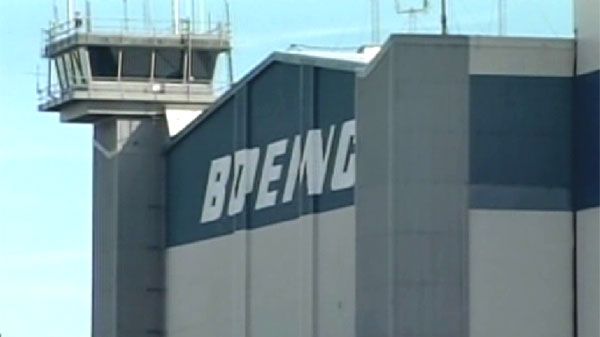WICHITA, Kan. -- In what company officials described as a bid to cut costs in a tight market for defense spending, Boeing announced plans to close its massive plant in Wichita before the end of 2013, a move that would bring about 100 to 200 jobs to the Puget Sound region.
Wednesday's announcement means the loss of 2,100 well-paying jobs at its Kansas facility, which was once considered the centerpiece of Wichita's claim to be the air capital of the world. The work will move to Boeing facilities in Texas, Oklahoma and Washington state.
The decision was not a surprise because Boeing said in November it was looking at closing the Wichita plant. But it still drew an angry response from Kansas lawmakers who -- working with Washington state officials -- helped Boeing land the billion dollar Air Force refueling tanker project in February.
Boeing's announcement is that things have changed, U.S. Sen. Jerry Moran (R) said. Well, the only thing that really has changed in my mind in the last year is Boeing now has the contract. When they made the commitments, they didn't.
Boeing had promised to bring an additional 7,500 jobs to Wichita once it landed the contract. Now Kansas lawmakers want Boeing to deliver.
They said if the tanker is awarded to the Boeing company and not to EADS Airbus, the tanker finishing facility will be in Wichita, Kansas, said U.S. Rep. Mike Pompeo (R). It was very clear it was unequivocal, and they have have an obligation to live up to that commitment.
Puget Sound to gain, lose jobs
The military modifications on the Air Force refueling tanker, the KC-46A, done by Boeing employees in Wichita will shift to Boeing's Puget Sound facilities, resulting in about 200 jobs relocating to Washington.
While Puget Sound will gain some jobs, it will also lose some. Boeing plans to relocate the military branch of its Global Transport and Executive Systems -- primarily engineers and supply technicians who support the C-32 and C-40 -- from the Puget Sound region to Oklahoma City.
Aircraft maintenance and military modification work will be done in San Antonio at the former Kelly Air Force Base. Engineering work will be sent to Boeing's facilities in Oklahoma City. The move will bring 800 jobs to Oklahoma City and 300 to 400 jobs to Texas, said Bass.
Boeing said 24 Kansas-based suppliers for the refueling tanker project will still provide parts as planned.
The KC-46A is based on Boeing's 767 airliner air frame, which is built at Boeing's Everett plant. Boeing employees in Kansas were going to install the refueling boom, which delivers the fuel to another airplane, and do other military modifications and systems installations.
Modification on the KC-46A will now follow Boeing's approach to the U.S. Navy P8A, which is the modified 737. The main aircraft is built in Renton, but instead of being flown to Kansas for military modification, the P8A is brought to Boeing Field and the work is done in-house, which the company said saves a lot of money.
Closure 'a blow' to Kansas
Boeing said it will continue to be a player in the Kansas economy and its aerospace industry. The Chicago-based company spent more than $3.2 billion with 475 Kansas suppliers last year. Kansas is the fourth-largest state in its supplier network, it said.
But that wasn't enough for lawmakers like U.S. Sen. Pat Roberts (R), who said Boeing had promised as recently as February to remain in Wichita if it landed the tanker contract. Roberts and others urged the company to reconsider.
Today's announcement by Boeing's leadership is hugely disappointing to me, but more importantly to the thousands of workers whose livelihoods are affected by this decision, Roberts said.
Sen. Moran called Boeing's move a blow to our mental health as well as our pocketbooks. Kansas officials are still willing to do what it takes to keep the Boeing plant open, but it's difficult to negotiate with someone who hasn't kept their word, he said.
Gov. Sam Brownback (R) promised that Kansas will pursue opportunities in commercial aircraft manufacturing. Aircraft makers like Cessna Aircraft Co., Hawker Beechcraft and Bombardier LearJet still have plants in Wichita, which Brownback said remains the best place in the world to build airplanes.
Boeing has had a facility in Wichita since it bought the Stearman Aircraft Co. in 1929. During World War II, B-29 Superfortresses -- the planes that delivered the atomic bombs to Hiroshima and Nagasaki -- were built at a plant in Wichita.
KING 5's Glenn Farley and Liza Javier contributed to this report.


